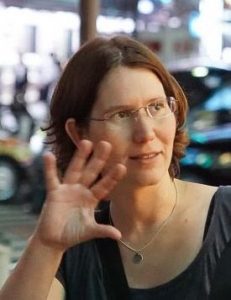Parallel science? The Jewish Historical-Ethnographic Commission and conditions of Jewish Studies in the late Soviet Union
Dr. Ulrike Huhn
Bremen UniversityNovember 6, 2018 /6.30 pm
Center for Urban History, Lviv
After years of difficult conditions for Jewish Studies in the Soviet Union, a new Jewish Historical-Ethnographic Commission was founded in 1982, intentionally named after her late imperial predecessor. It was a daring undertaking, especially taking into account the fact that some of its members had applied for emigration to Israel and took part in the independent Jewish movement. However, other founding members were reputable colleagues of the institute of ethnography of the Soviet academy of science who, besides to their commitment for the Jewish commission, worked on other ethnographic subjects.
In 1982, despite initial reservations of its managing editor Aron Vergelis, the Commission convinced the only Yiddish language Soviet journal "Sovetish Heymland" which was originally tasked to propagate Soviet liberal attitude towards its Jews to launch a special section on Jewish ethnography. The cooperation with the journal allowed the Commission to publish some of its results and provided access to libraries and archival material on Jewish topics. Despite distrust and surveillance by the state, Jewish commission’s members of the Jewish movement used the state’s official structures, i.e. "Sovetish Heymland" and the academy of science, to recover the heritage of its predecessor in archives and museums but also to conduct field research in remote areas of the Soviet Union. Doing so, it both served as a platform for exchange and a starting point for some future professionals in Jewish studies.

Dr. Ulrike Huhn
teaches Eastern European History at Bremen University. She completed her PhD at the Humboldt University in Berlin. Her first book is on the Russian Orthodox Church and religious practices in the Soviet Union during the 1940s and 50s. Another field of Ulrike Huhn’s interest is the revival of Jewish Studies both within the official academic ethnographic community and the independent Jewish movement.
